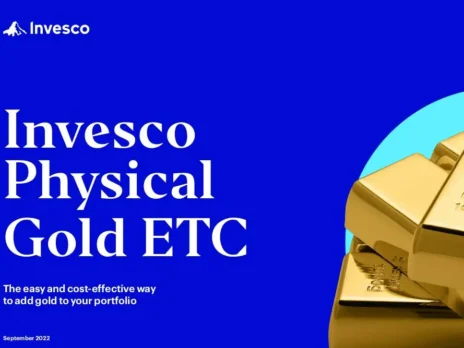

ESG has become a crucial dimension in investment decisions. Climate change and ESG goals represent the next stage in the evolution of investment management, yet there are many differing opinions about what classifies as sustainable investing.
“We now live in a world of three dimensions in investing terms,” says Clive Emery, fund manager at Invesco. “We have lived, since the 1950s and [modern] portfolio theory, in a world that has worked with risk and return, but we are adding a third dimension of sustainability and responsibility, which is increasingly becoming a fiduciary duty to add to investment funds and to deliver for society.”
Sustainable investments still account for less than 10% of assets under management in the UK, but demand is growing, as is client understanding of ESG. Huge changes are also coming in terms of reporting requirements and analytical tools in the range of investment products available, but ESG remains a complex subject, defying the rules of the familiar binary world of risk and return.
“Sustainability is multi-faceted, complex and subjective,” says Emery. So what can we learn from people who have turned theory into practice by launching sustainability-oriented products?
Risk, return and responsibility in sustainable investing
Investment managers now have to add responsibility to the usual considerations of risk and return. ESG is an additional component to investment analysis that brings a high degree of complexity.
“The very clear thing is that it is really hard, complex and difficult,” says Tom Hemmant, senior credit analyst and fund manager for the Invesco Environmental Climate Opportunities (Eco) Bond Fund. “First of all, we narrowed down the ESG part of the mandate, so our Eco Bond Fund is aiming to support the transition to a low-carbon economy. The reason we have done that is that it gives us a real clarity of purpose – a guiding star to get through the complexity.”
Social and governance practices may be equally important for investors, but to reflect the entire scope of ESG in one product may not be possible. The pragmatic approach to designing a fund must balance a financial return with ESG.
While the best ESG ratings are in European investment-grade bonds, these do not offer the best returns, so Hemmant’s fund incorporates high-yield bonds and has a global mandate, though the core is European.
“That gives us a much bigger universe so that we can find the cases where you can triangulate the risk, return and, also, the climate story,” he says. “So, in summary… [while] we are open to a bigger universe… we take a considered and balanced approach.”
“One of the key components that I have been campaigning on is the intentionality of the fund – where does your ESG objective sit in terms of the financial objective, because it is incredibly difficult to define,” adds Emery “It could be sustainability, it could be gender, it could be the environment, it could be social housing. Defining that I think is really crucial – establishing the objective and, therefore, [giving] clarity to clients of what you’re trying to achieve.”
ESG investment driven by data
One key issue that makes the world of ESG investing so complex is the reliance on data that may not be complete, up-to-date, objective or readily available. While the correlation of credit ratings between rating agencies is close to 90%, the correlation of ESG ratings is 30-50%.
“You could be rated excellent by one provider on a certain area and you could be rated appalling or on the low end of the spectrum with another,” observes Emery. “That level of subjectivity shows, in a quite stark numerical context, the level of greyness that exists in some of these very subjective issues.
“Being green is not black or white. It is in this sort of grey area,” he adds.
Specificity is, therefore, essential, as Christopher Mellor, head of ETF (exchange-traded fund) equity and commodity product management at Invesco, points out. He recently constructed a market-leading net-zero ETF to track Paris-aligned benchmarks and notes that “there are multiple moving parts: delivering on performance expectations, [asking] what are the exposures that you’re looking to offer and meeting those sustainability requirements – and defining those sustainability requirements – and finally, more importantly, also ensuring that the strategy is investable and works in the real world”.
The suite of products for climate-conscious investors focuses purely on companies reducing their carbon intensity and making ongoing improvements as outlined in the Paris Agreement, which outlines Scope 1 (direct greenhouse gas emissions), Scope 2 (indirect emissions such as from energy consumption) and Scope 3 (emissions associated with a company’s products through their lifecycle).
“Delivering on that requires good-quality data,” says Mellor. “Scope 1 and Scope 2 are reasonably easy to measure – the emissions associated with the energy being used by the company, or directly with the activities of the company. Scope 3 emissions are a bit harder to deal with – those are the emissions associated with the use of the company products downstream.
“So, a car company, for example – Scope 3 emissions associated with a company like Volkswagen will be relatively high because it’s the emissions of the cars over their whole driving life. Quality of data is very good for Scope 1 and 2, and it’s much harder to estimate the total life emissions of an auto manufacturer. The reality is that you have got to deal with those shades of grey.”
Drawing the line
Another complicating factor is the difference in decisions about which companies to include and which to exclude on the grounds of sustainability. There are different approaches to scoring companies, so the only option is to provide choice for investors.
“About a decade ago, we had calls for disinvestment from pension funds in the oil majors in the UK, and I think the pendulum is swinging more towards inclusion rather than exclusion, and integration and engagement with companies,” says Mellor.
With 400 ESG ETFs in Europe, investors can choose their own minimum criteria. For example, most products exclude tobacco, labelling it unsustainable, but only the more extreme, ‘darkest green’ products – where ‘dark green’ (or Article 9 under the EU’s Sustainable Finance Disclosure Regulation classification system) denotes products promoting a sustainable investment objective – exclude alcohol companies.
For power generation, the building out of renewables is a dominant theme, but there are areas – notably nuclear power – that raise challenging questions.
“I have deep misgivings and I’m deeply uncomfortable with the idea of creating intergenerational waste,” says Hemmant. “It doesn’t feel like the right solution.
“But actually, our mandate is focused on climate and carbon, and nuclear is reliable – its base load, [and] it’s indigenous, it’s domestic. You’re not relying on unreliable partners to supply a commodity,” he adds.
“The war in Ukraine has the potential to be a major bump in the road,” he adds, because the disruption of gas supply and the effect on prices could lead to more coal generation in Europe, even when utilities want and plan to reduce coal-fired power plants, though it does reinforce the case for long-term investment in renewables.
A call for clarity on ESG investment
Emery is keen to point out that there is no golden path, and trade-offs between environmental and social factors add complexity.
“Some of the largest companies in the UK have some major ESG challenges,” points out Tim Marshall, fund manager at the Invesco Sustainable UK Companies Fund. “Take the oil companies, for example. Both BP and Shell have targets to reach net zero, and, personally speaking… if they are successful in reaching those targets then they will have had probably more of a contribution towards the success of net zero than any other companies.
“All of that said, I think at the moment, judging the success of that transition from oil companies to energy companies, I think is really hard,” he adds.
The world of ESG investment has many grey areas, is prone to subjective interpretations, and is changing all the time. For now, allowing investors to express their views about what they believe in, while providing a balanced approach to sustainability and financial return, is the best option.
Funds must have clear objectives and explain the methodology and be able to prove whether they are delivering on their aims. The clarity that comes from that approach will build integrity in ESG investing and, therefore, open the path to the next step in the process of evolution.







